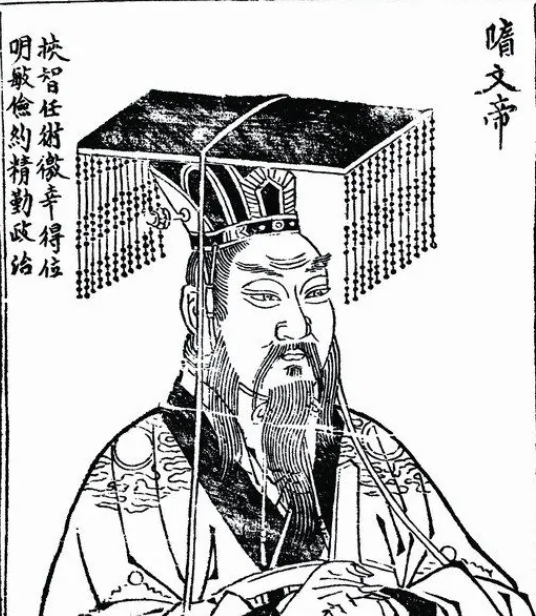Sui Wen Di-Yang Jian
Yang Jian, Emperor Wen of Sui Dynasty (from July 21, 541 to August 13, 604), was born in Huayin, Hongnong county (now Huayin City, Shaanxi Province). The 14th grandson of Han Taiwei Yang Zhen, the founding emperor of the Sui Dynasty, reigned from the first year of the founding emperor (581) to the fourth year of Renshou (604). The small character Narayan, Xianbei's surname Pu Liuru, was restored to the Yang family after Yang Jian came to power.

His father, Yang Zhong, was a military aristocrat in the Western Wei Dynasty and the Northern Zhou Dynasty. During the reign of Emperor Wu of the Northern Zhou Dynasty, he was granted the title of Duke of suiguo, and Yang Jian inherited his father. Emperor Xuan of the Northern Zhou Dynasty succeeded to the throne, with Yang Jian as the upper pillar state and the great Sima, looking forward to the rise of the sun. In the first year of Dading in the Northern Zhou Dynasty (581), Yang Jian was abdicated by Emperor Jing of the Northern Zhou Dynasty and changed to the Yuan Dynasty. After Emperor Wen of Sui Dynasty ascended the throne, he carried out a series of reforms in political, economic and other systems. Revise the criminal law and system to make it suitable for China after the unification of the north and the south. The system of three provinces and six ministries was implemented in the central government, and the local three-level system of state, county and county was changed to two-level system of state and county, thus consolidating the centralization of power. Many tax cuts have been made to reduce the burden on the people, promote national agricultural production and stabilize economic development. In the ninth year of kaihuang (589), Yang Guangnan, king of Jin, was sent to Pingchen to unify the north and the south. Emperor Wen of Sui Dynasty adopted military defense and political appeasement policies towards the surrounding ethnic groups, effectively handled ethnic contradictions, and was honored as "sage Khan" by the northern ethnic minorities. During the kaihuang period, the Sui Dynasty had a vast territory and a population of more than 7 million households.
During the 24 years of Emperor Wen of Sui Dynasty, he was determined to reform and made outstanding achievements. However, in the late period of his reign, he became suspicious, killed meritorious officials, and listened to the words of the queen of literature. He deposed the crown prince Yang Yong, Li Jin and Wang Yang Guang as the crown prince, which buried the root of the subjugation of the country. In the fourth year of Renshou (604), he died strangely in Renshou palace. At the age of 64, he was named Gaozu and Emperor Wen, and was buried in tailing.